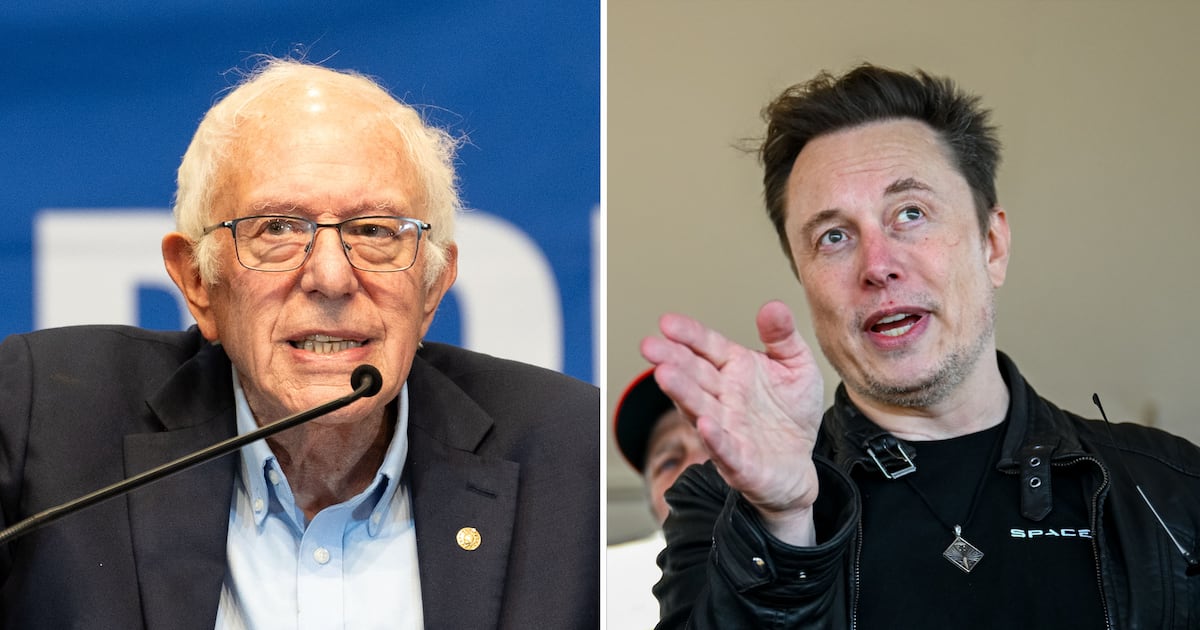What’s the point of Jill Lepore writing These Truths: A History of the United States, her new 932-page history of America from Christopher Columbus to Donald Trump?
First, those are quite the bookends for an American epic—from the first Western voyager to sail to America (and give it smallpox) to the president who just called his former mistress “Horseface” on the internet. Lepore populates These Truths with big personalities, eccentric geniuses, and committed activists who work their will in large and small ways, and she does it with a historian’s rigor and a novelist’s eye for details.
Second, Lepore is a Harvard scholar and a New Yorker staff writer—a historian and a journalist—at a time when technology has swept the documentary world into a continuous feed of tweets and pics and podcasts and DMs. Lepore is attuned to how technology has continuously changed how people communicate and what records are left.
ADVERTISEMENT
Finally, the last single-volume history of the United States before These Truths was a decade ago—and by a British scholar!—and each generation should write its own. The facts don’t change, but archives open and secrets reveal. Deep Throat was Deep Throat until he was Mark Felt, and the history of Watergate evolves the more we learn. Priorities change, too; the next generation of historians will certainly reexamine gender dynamics in the wake of #MeToo.
“The work of the historian is not the work of the critic or of the moralist,” Lepore writes in These Truths. “It is the work of the sleuth and the storyteller, the philosopher and the scientist, the keeper of tales, the sayer of sooth, the teller of truth.”
Lepore sat down with The Daily Beast to discuss her approach to American history.
What is pokeberry juice?
[Laughs.] That comes up in a quite vivid tale of the intensity of anti-slavery fervor in the 18th century, which was largely religious and strongest in the British colonies among Quakers. Benjamin Lay was a Pennsylvania Quaker. He was a hunchback and a very tiny man who had a conversion experience seeing people whipped and brutalized when he lived in Barbados before he came to Pennsylvania.
One of the wonderful stories about Benjamin Lay is the day he went to a meeting house with a Bible where he had carved out the pages and put in it a pig’s bladder full of pokeberry juice, which is a crimson red juice. He gives this speech about how God will punish people who have contaminated the faith with the vile cruelty of slavery. He punctures the bible with his sword, and this seeming blood spatters out violently across the meeting house.
Did that get their attention?
It was a stunning act of political theater. Lay comes across in a lot of historical records as something of a kook, and he ended up a hermit. He wouldn’t wear clothes made by enslaved people, he wouldn’t eat food that came from animals, and he wouldn’t ride a horse because he wouldn’t spur an animal. He was also influential with people like Benjamin Franklin.
There’s a lot in the book about the institutional contradiction of independence and slavery. All men are created equal but not those men and not women. Did you make sense of people holding those opposing views?
There are two senses to make of it. One is to understand that it worked for them because they believed in racial difference or created an entire ideology of racial difference to resolve that conflict. The other way to understand it—and I’m not the first to argue this—is that it is enslavement and the brutal reality of enslavement that causes the colonists to think about liberty in new ways.
Why were the founders preoccupied by equality?
They were questioning the divine right of kings—the idea that anyone inherits political authority over the body of the people. Their understanding of the body of the people was quite narrow, but it’s essentially the John Locke philosophy that all men are created equal and born naturally with certain inalienable rights. That was crucial to the claim that the colonies ought to be independent.
We tend to overlook the importance of evangelical Christianity in expanding the idea of equality, which largely happened in the 1820s and 1830s. Christians were a big part of the abolition movement, and the Quakers in particular were a significant factor in the New England states abolishing slavery. They expanded the notion of equality—men, women, black, white—from Jefferson’s ideas to the notion of equality that we have today.
The current times have made me think more about when people are arguing in good faith. As you look at what people like John Adams or Alexander Hamilton wrote, do you always impute good faith to their beliefs and their arguments? Do you consider at all they they may have started with the outcomes and worked their way back to the reasons?
Different people were differently honest the same way that writers and speakers are today. John Adams was a pretty cynical fellow. I find him pretty unsympathetic for a lot of reasons, including the fact that he was a political propagandist. Historians owe people the same presumption of good faith and dedication to inquiry whether they’re dead or alive.
Congressional Republicans are very dedicated to balanced budgets when a Democrat is president, but they stop talking about that when a Republican is president. Haven’t political actors been doing that all along?
I would add to the example the Democrats who call for judicial activism or judicial restraint depending on whether the Supreme Court is liberal or conservative. It’s not something that Republicans do and Democrats don’t do.
I don’t disagree with you, but that may actually make it harder to spot. There are no usual suspects when it comes to arguing in bad faith.
But have people done it in the same way across time? Absolutely not. There are people who do that in ways that I find fairly contemptuous. For example, I find Andrew Jackson to be pretty bald-faced about his many betrayals. Lincoln made compromises, but he generally rose above political chicanery. People in American politics who have been the least concerned with the public interest don’t generally come off well in the historical record. They may have duped people to win elections, but they don’t dupe posterity.
I’ve been reading history lately with a cynical eye. I doubt that human nature has changed much in the last 300 years, which is why I think it’s fair to look for that kind of cynicism throughout American history. When they say “taxation without representation,” are they really just saying “these taxes are a bit high”?
Politicians look worse today, but everybody looks worse today because so much more of what we think and do and say can be documented. The trail we leave behind—the candid display of self-interest, the compromises—are just more on display today. The willingness that people have to hate each other is the more distressing thing to me about the present day.
With the history of the United States having such a range of objectives and outcomes and affecting different groups of people differently, did you develop any sense that a single-volume history shouldn’t attempt to have too cohesive a view of it all?
I try to make sense of the whole sweep of the story. It wouldn’t have been worth writing the book had that not been my objective. Whether I succeed is another question. I didn’t set out to write a multi-volume encyclopedia; the book is chronological, but the individual chapters are animated less by the passage of time than by calling attention to things that contribute to my own larger argument. It’s not fair to a reader to write a thousand-page book that doesn’t have momentum and an argument. There’s a use for compendiums, but that’s not what I was trying to write.
The 2000 and 2016 elections produced presidents without a majority of voters. In a majoritarian sense, the country didn’t want Donald Trump. Can you overread what the country “wants” from those outcomes?
The country elected Donald Trump, and it could have gone another way. History is full of contingency. A historian has to try and explain the outcome but not assume that the outcome was inevitable. I don’t examine a lot of elections in this book where I’m principally interested in the election as an expression of popular will that points the country in a different direction. The books that do that tend to be chiefly concerned with the power of the president and the success or failure of presidents. There is a lot of presidential history in this book, but that Great Man Theory of history that this book really renounces without endorsing the competing model that history is about conflict between groups and the struggle of certain groups to gain power.
Isn’t history about the conflict between groups and the struggle of certain groups to gain power?
I don’t find that model of history to be particularly helpful in explaining how change works. This is book is a merging of those two kinds of historical narratives to come up with a more comprehensive way of thinking about how politics works and how change happens. I don’t look at the presidency as a puppet of popular will; that’s not how our democracy has ever worked.
American history includes a lot of close but binary choices—federalists vs. anti-federalists, the North vs. the South, Democrats vs. Republicans, 5-4 majorities on the Supreme Court—where there are decisive outcomes to disputes where the sides are fairly evenly divided. American history as a study of conflicts seems unavoidable to me.
We have had a fairly stable two-party system, which necessarily organizes dissent in a way that doesn’t topple the government. The problem of founding a country in a revolution is that people out of power could simply topple the government. The two sides have to agree that whoever wins actually gets to win. Where things fall apart is when they don’t accept that they have lost. Ever since the attempt to impeach and remove Bill Clinton, every president has faced a portion of the political elite that thinks the president should be impeached for one reason or another. That’s the losers in the election not agreeing to accept their loss.
The expansion of voting rights to women in 1920 and after the Voting Rights Act in the ’60s affected how the parties functioned by enfranchising huge swaths of the population, so the parties have shifted over time to accommodate and court new constituencies. The Republicans’ abandonment of white women in the ’70s in favor of white, southern, Democratic men, is unstable and affects a lot of the political battles in Washington.
Donald Trump won a majority of white women, didn’t he?
That’s an aberration. White women voted against Ronald Reagan because of the Equal Rights Amendment and because of abortion, and Donald Trump’s support from white women is part of a huge realignment.
Does the Progressive Era provide any guidance for how a Democratic Congress and White House after 2020 could reverse balance of corporate and voter interests?
One missing ingredient in that recipe would be the muckraking journalists of the Progressive Era. Where’s the Ida Tarbell? Where’s the Ida B. Wells? Where are the writers who exposed Standard Oil and lynching and election corruption? The conservative media doesn’t police conservative government and has turned the press into a press that’s truly partisan now in a way that it hasn’t been for many decades. People have to be persuaded that reform is needed, and the persuasion has traditionally come from muckraking journalists.
Don’t we know what most of the problems are, though?
We know that climate change is a big problem, but we don’t know enough to act on it. That depends very much on who the “we” is there. The technology of communications has completely transformed that.
Newt Gingrich is a historian of a sort. What does he get wrong about American history?
His account of American history is that we had a common civilization that unraveled in 1965, and I would agree that we have had a lot of unraveling since 1965. Modern polarization begins around 1968, and the rise of income inequality begins around that same time. Where I disagree with Newt Gingrich is that we had a common civilization before 1965.
That idea sets aside the entire history of slavery, Jim Crow, and civil rights as a sidebar. It’s not a sidebar. It’s essential to the story of America. And it leaves you unprepared to think about present-day struggles if you have no sense that they’ve been going on as long as they have.






